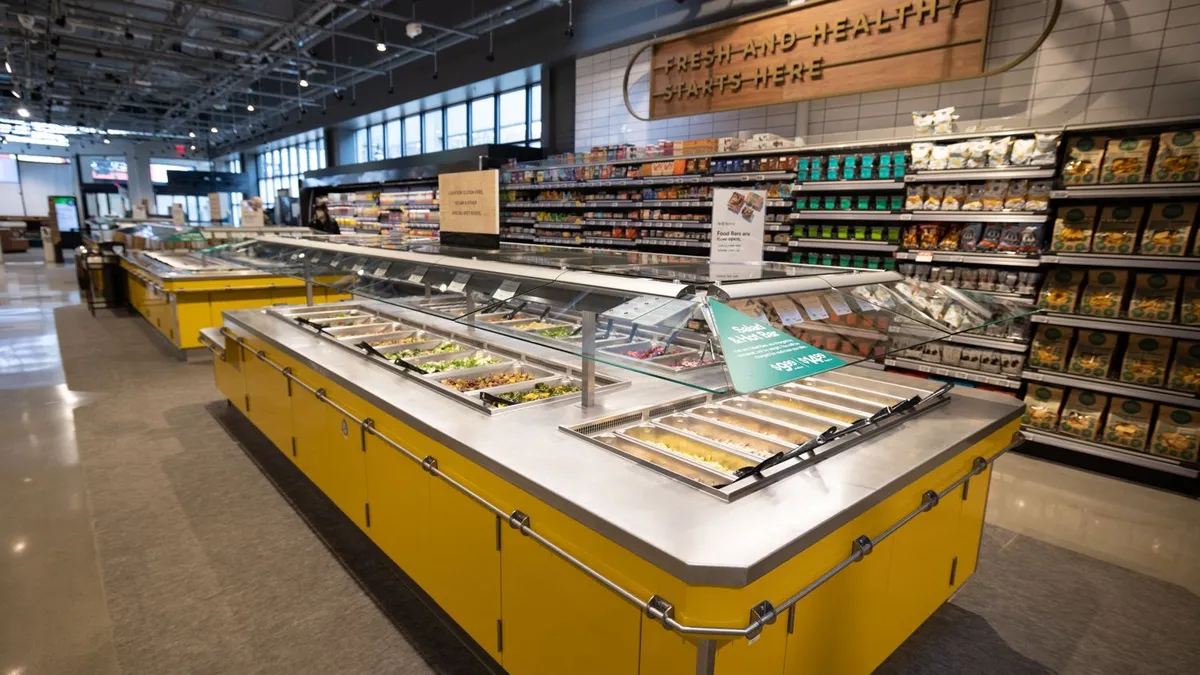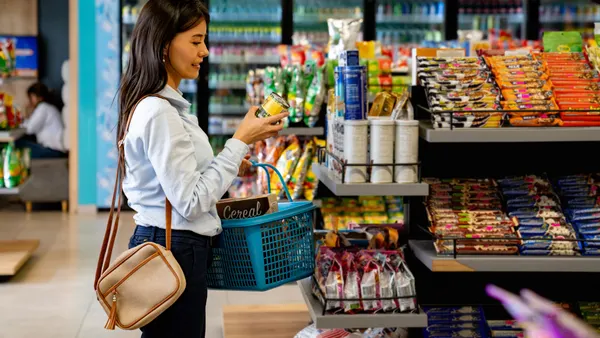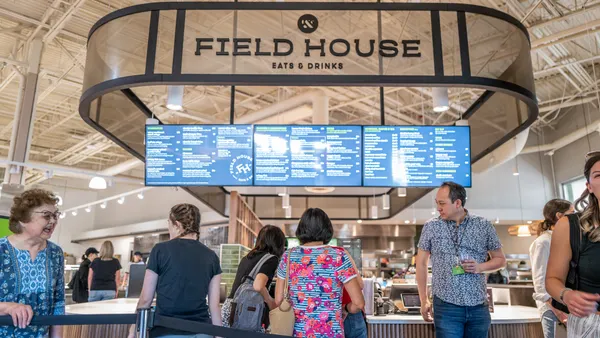Dive Brief:
- After taking a hit earlier in the pandemic, grocers’ foodservice and prepared foods have solidly rebounded in dollar sales and unit growth, surpassing 2019 levels, according to a new report from the Food Industry Association (FMI).
- Foodservice and prepared foods sales hit $31.3 billion in the 52 weeks ending Aug. 27, up 9.3% from the year-ago period, and deli sales reached $47.9 billion in the same time period, up 12.3% from a year ago, according to NielsenIQ data cited in The Power of Foodservice at Retail 2022 report.
- As grocers and consumers lean more into deli-prepared foods, the trade group noted food retailers have certain areas, like discounts and healthier offerings, that can give them even more of a competitive advantage over restaurants.
Dive Insight:
Prepared foods’ rebound for grocers comes at a time when at-home meal preparation remains high, FMI said, noting that consumers are increasingly turning to weekly meal planning and cooking from scratch amid high inflation.
Additionally, about 25% of consumers surveyed in May said they are buying more deli-prepared foods compared to a year ago, FMI noted.
“Consumers are outsourcing prepared meals for specific reasons, such as time constraints or not feeling in the mood to cook,” FMI said in the report, which is based on a survey of 2,009 adult U.S. grocery shoppers between May 9-25 and NielsenIQ data. “Restaurants are higher profile than retailers when shoppers think about places to buy foodservice, although retail is considered a better overall value, which is an important factor in this inflationary environment.”
At the same time, consumers are seeking different options by meal occasions, leading to a hybrid approach that blends at-home cooked meals and prepared offerings, FMI said. Cross-shopping also appears to be happening, with 12% of surveyed shoppers saying they get their deli-prepared foods from a specific store that is not their primary retailer.
The quarter of surveyed consumers who said they are buying more deli-prepared foods is driven by larger households, urban dwellers and millennials, the report noted. FMI also found that Gen Z and millennial consumers are more likely to make trips to stores for foodservice items.
Deli foodservice outperformed most of grocers’ other fresh departments, but certain offerings fared better than others, the report noted, citing NielsenIQ data. Pizza, for example, had standout dollar (16.7%) and unit (20%) sales growth for the 52 weeks ending Aug. 27 compared to a year ago, while fully cooked meats, including rotisserie chicken, lunchmeat and cheese all recorded unit sales declines for the same period.
At a time when grocers and third-party providers are connecting the dots between prepared food offerings and tech-savvy consumers, FMI’s report reinforces the importance of the overlap between foodservice with omnichannel shopping. Notably, 50% of surveyed shoppers cited the ability to order ahead via an app or online and have an indoor pickup station for prepared foods as reasons to make purchases in that department, the report found.
While restaurants still have a higher profile among consumers as a way to get prepared meals, FMI says there are several ways grocers can boost their competitive edge. The organization recommended retailers consider having different types of meal components and that they provide deals, such as discounts for foodservice meal bundles, as shoppers grapple with higher prices.
As grocers reevaluate their foodservice offerings through boosting signature items and healthier options, such as oven-baked chicken, it could help attract shoppers’ dollars, the report said.
“The focus on healthy foodservice has taken a big jump in 2022,” the report said. “Shoppers have increased interest in nutritious/healthful options when buying deli-prepared foods from a grocery store. Two-thirds of shoppers now emphasize this aspect.”
While consumers are increasingly seeking healthier items, FMI’s finding that only about one-third said they were very satisfied with the nutrition level could indicate that grocers can make improvements in that area.
FMI also suggests that retailers think “more like restaurants” to improve their loyalty and competitive edge. Some, like Chicagoland grocer Dom’s Kitchen & Market, are already tapping into this restaurant mindset, which FMI said can include offering convenient, omnichannel shopping experiences.
In a similar vein, grocers could consider offering foodservice items seasonally or for limited timeframes, FMI noted. Themed meals is another area potentially worth exploring: More than half of the survey respondents expressed interest in “featured days” such as Taco Tuesday and Pizza Friday, the report said.












